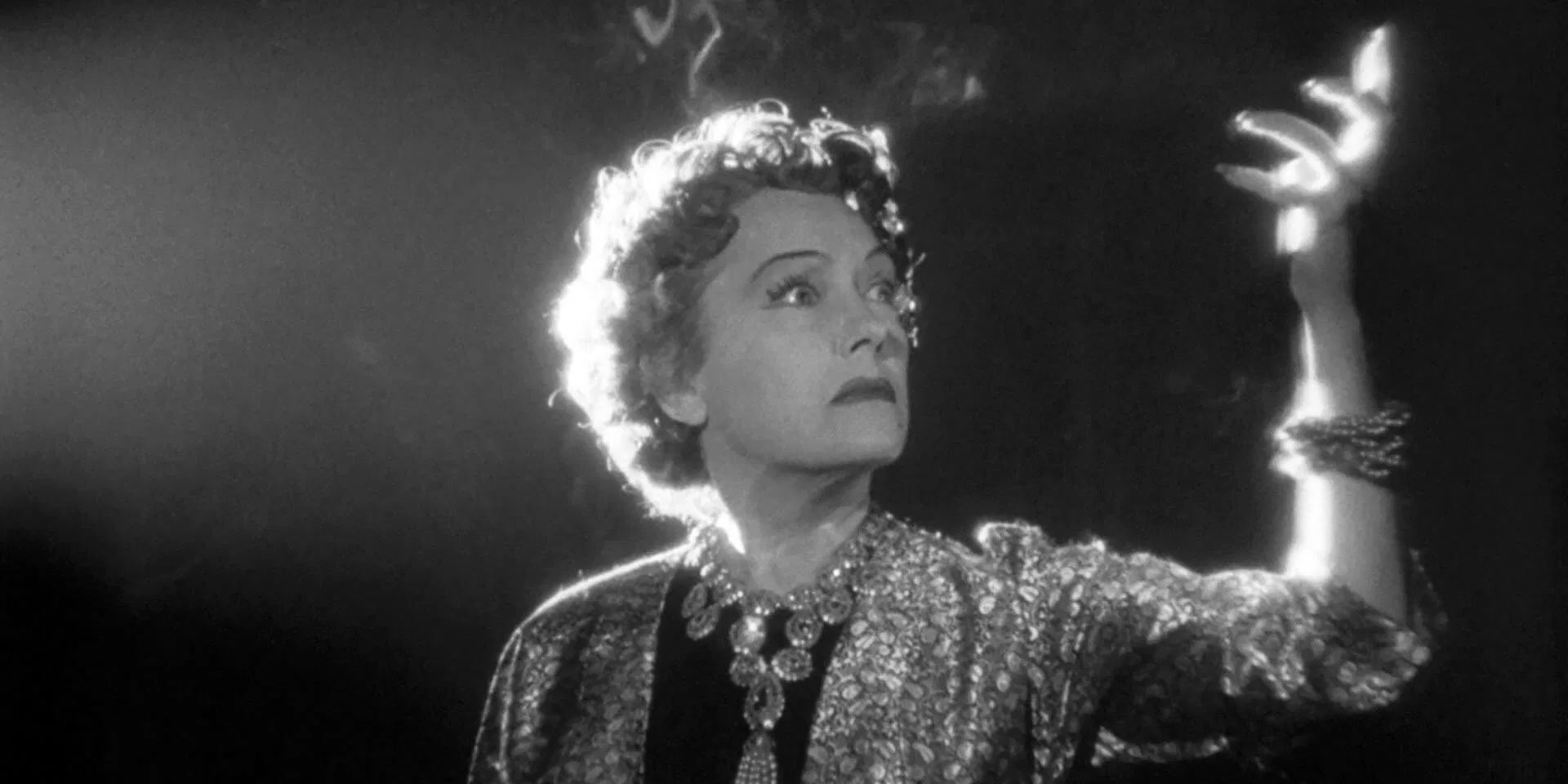For an artist as enigmatic as David Lynch, many of his cinematic influences are incredibly accessible. He named many of his favorite films throughout his lifetime, and the list includes some expected additions like 8 1/2 or the works of Ingmar Bergman, but many others that are noted Hollywood classics such as Rear Window and The Wizard of Oz. However, one of his most beloved films is an enduring, iconic classic that turns 75 this year and acted as an inspiration for what is widely considered Lynch’s greatest works, Mulholland Drive.
The film, Sunset Boulevard, stars Gloria Swanson as Norma Desmond — a waning silent-film star struggling with an industry that is ready to leave her behind. The movie, released in 1950 and directed by Billy Wilder — the filmmaker behind other classics such as Double Indemnity and The Apartment, is a bleak comedy and a psychological drama about the darker and more tragic side of the Hollywood story.
David Lynch Calls ‘Sunset Boulevard’ One of His Favorite Films
Lynch has doted on Sunset Boulevard many times over the years, including a 2011 Dazed interview where he described his love for Wilder’s film, saying: “It has a lot of sadness in it, and beauty. And mystery. And dreams. Beauty, beauty, beauty, and more dreams.” That is a spectacularly Lynchian way of describing something, and also works as a great descriptor of why so many of his own films are so beloved. Sadness, beauty, mystery, and dreams. It really is that simple.
Lynch loved the film so much that he even named his character in Twin Peaks after an uncredited role in Sunset Boulevard. Gordon Cole, the eccentric FBI chief Lynch portrayed in the film, shares the name of the studio executive who wanted to borrow Norma’s car. This reference is hammered home even more explicitly in Twin Peaks: The Return when Kyle MacLachlan‘s Dale Cooper experiences a resurgence of dormant memories upon hearing the name while watching Sunset Boulevard on TV. However, Lynch’s admiration for Wilder’s film comes through stronger than ever in one of his greatest works.
‘Mulholland Drive’ Is, In Many Ways, David Lynch’s Homage to Billy Wilder’s Enduring Classic
Lynch’s masterpiece came decades after Sunset Boulevard, but the films both speak to a pervasive rot at the heart of Los Angeles. Neither of these works are positioning themselves as vicious hate-letters to Hollywood, because neither Lynch nor Wilder feel that way. Mulholland Drive pays tribute to the rich history of Hollywood through the casting of Ann Miller, much like how Sunset Boulevard features appearances by the likes of Buster Keaton and Cecil B. DeMille. Lynch loves Old Hollywood, but with everything he may love about the City of Dreams, he also accepts and confronts the darker side without hesitation.
Lynch included a few explicit references to pay homage to Wilder’s film. One of the most notable is the presence of Norma Desmond’s car parked just past the gates of the Paramount lot where Betty (one of Naomi Watts‘ dual-roles in the film) goes for an audition. Another is the titling convention, as both films take their names from famous Los Angeles streets and feature the street sign doubling as a title card. But the similarities go much deeper when you get into the actual content of each film.
‘Mulholland Drive’ and ‘Sunset Boulevard’ Are Two Sides of the Same Coin
Sunset Boulevard is the “has-been” to Mulholland Drive‘s “never-was.” Two stories that reflect the disastrous effect on the psyche that the movie business can have when at its most parasitic, neglectful, and abusive. One sees a starlet clinging to the fame that once was, while the other sees a woman who never got the chance to shine in the first place; both end in violence and tragedy. Mulholland Drive is a complicated and surreal story, one that has confounded audiences for years. But if you take what the movie offers at face value, setting aside what may or may not be dream logic or supernatural occurrences, what you are left with is a surprisingly straightforward story about a jaded actress making a terrible choice out of frustration and jealousy.
Mulholland Drive and Sunset Boulevard vary wildly in tone and style at times, but the spirit of Wilder’s story flows through Lynch’s work. Hollywood is a place of glamour and misery, stardom and squalor, and Lynch sees something truthful, beautiful, and enduring in taking the good and the bad of that industry as it is. Lynch’s film does not crib from Wilder in so much as it honors him, and the two exist as masterpieces in their own right that could make an incredible downer of a double feature.


